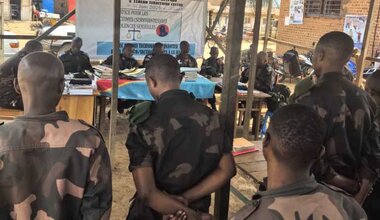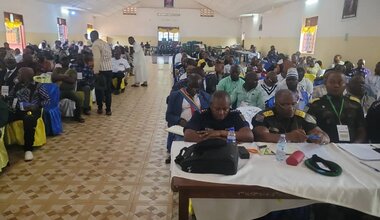MONUSCO Presents the Action Plan to Combat the Recruitment and Use of Children in Armed Conflict

Uvira, 25 January 2013 - Last December in Uvira, the Child Protection section of the United Nations Stabilization Mission in the Democratic Republic of the Congo (MONUSCO) presented an action plan to combat the recruitment and use of children in armed conflict and serious human rights violations committed against them by elements of the Congolese defence and security forces.
The event was attended by some fifty local actors including military and police officers. A team of United Nations experts on the issue of children and armed conflict urged both civilian and military authorities to actively participate in the implementation of this plan which is expected to be launched in early 2013.
Considering the latent conflict between the Bafuliru and Barundi communities in the Ruzizi plain in Uvira, which has led to the creation of several armed groups and militias, there was consensus among participants on the relevance of this action plan. One of the participants added that "when identifying armed group spots, the government must take into consideration such aspects as compensation, the origin of these children, reinsertion, and education because when these children are eventually reintegrated into society, they have passed school age and some schools can no longer accept them".
Participants therefore proposed the establishment of training centres where these old children freed from the 'claws' of armed groups can learn trades. Finally, they recommended a relentless fight against impunity and suggested that "those who recruit children must also be judged in public so that by the end of 2013 there will be no children in any armed group".
The action plan was signed on 4 October 2012 in Kinshasa by the Prime Minister, Augustin Matata Ponyo and the Special Representative of the Secretary General of the United Nations for the DRC, Roger Meece.
Laurent Sam Oussou/ MONUSCO
 ONU
ONU Nations Unies Maintien de la paix
Nations Unies Maintien de la paix





